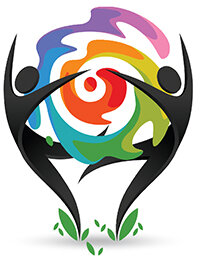As I wondered about the topic of mentorship, the thought that most captured me was not about identifying the role of mentor and expectations—how I believe a mentor “should be.” Instead it was the mentors I didn’t see coming and the posture of what mentoring looks like in (those) unusual places—in life, in relationships and even in spiritual direction. Yet I’ll begin with my starting place by going through some of what I unlearned about mentoring.
In my adolescent years involving sports, mentoring resembled coaching. Through the eyes of a young man, it was those who had “accomplished,” “achieved,” and “won.” It was the elusive thing “they had” that I wanted, and didn’t know how to get. Yet I was hopeful they could tell me how so I could do what they did, and become the person I hoped to be…or maybe the person they wanted me to be.
As I reflect on that place, my view was limited; of me, of the other, of what was unfolding. I didn’t know if I wanted change as much as I wanted to be different. And getting there, my desire was that it would be painless, easy, guaranteed, and kind. It wasn’t quite like that, but the experience and the relationships were secondary to the outcome (I wanted). Sometimes focus and drive can be overrated.
The next place I looked for mentors was in the world of “business.” Much like sports, it was a hierarchical view of how I saw others better than me, and how I could “get” what they had; success, recognition, and control. Or so I thought. One of the gifts in life is that it refuses to “settle” for the easy answers. Instead, it invites some of the most unlikely “mentors” into your life and offers mentoring in ways that you’d not imagined.
Who have been my best mentors and what kind of mentoring have they offered? My children would not refer to themselves in that way. They have been mentors in how they lived—from babies to young adults. They have a posture of loving me, giving to me, receiving from me, wanting the best for me without wanting to change or control me. They, like me, want safety and belonging to wonder, to grow, to have difficult conversations, face awkward moments and not be abandoned.
That, perhaps, is the truest mentoring I’ve experienced: a willingness to stay. To walk alongside without fixing. To hold questions without rushing to answer them. And to remain curious when my soul wanted certainty. For me, that’s the heart of spiritual direction.
Mentoring has changed for me—not as a pursuit of achievement but a participation in meaning, in relationships and even in mystery. It’s not so much about finding someone who has the answers, but someone who holds the questions with me, allowing me to be brave when I’d rather not. And sometimes, that someone is my own inner voice, finally given permission to speak—especially that which I would rather not say aloud, or to another.
In spiritual direction, we often speak of companioning. It’s such a gentle word. One that resists the pedestal and invites the step or the stillness when there is no clear path. The longer I live, the more I believe mentoring is less about quidance and more about presence. Less about clarity and more about courage. Less about the performance of success and more about the permission to be—confused, joyful, afraid, expending.
I once believed a mentor’s job was to help me “become somebody.” Now, I wonder if a true mentor helps me return to myself. To remember who I already am beneath the striving. And in doing so, awaken something I didn’t know was waiting.
I am increasingly drawn to those who carry a quiet wisdom, who aren’t impressive at first glance yet become unforgettable in their kindness and their love. Who don’t speak in answers but in stories that connect hearts and souls.
I don’t always recognize them right away. They might be friends, a stranger, a spiritual director, a child. And they don’t wear the badge of “mentor.” They simply show up. And somehow, that is enough. It’s always enough.
